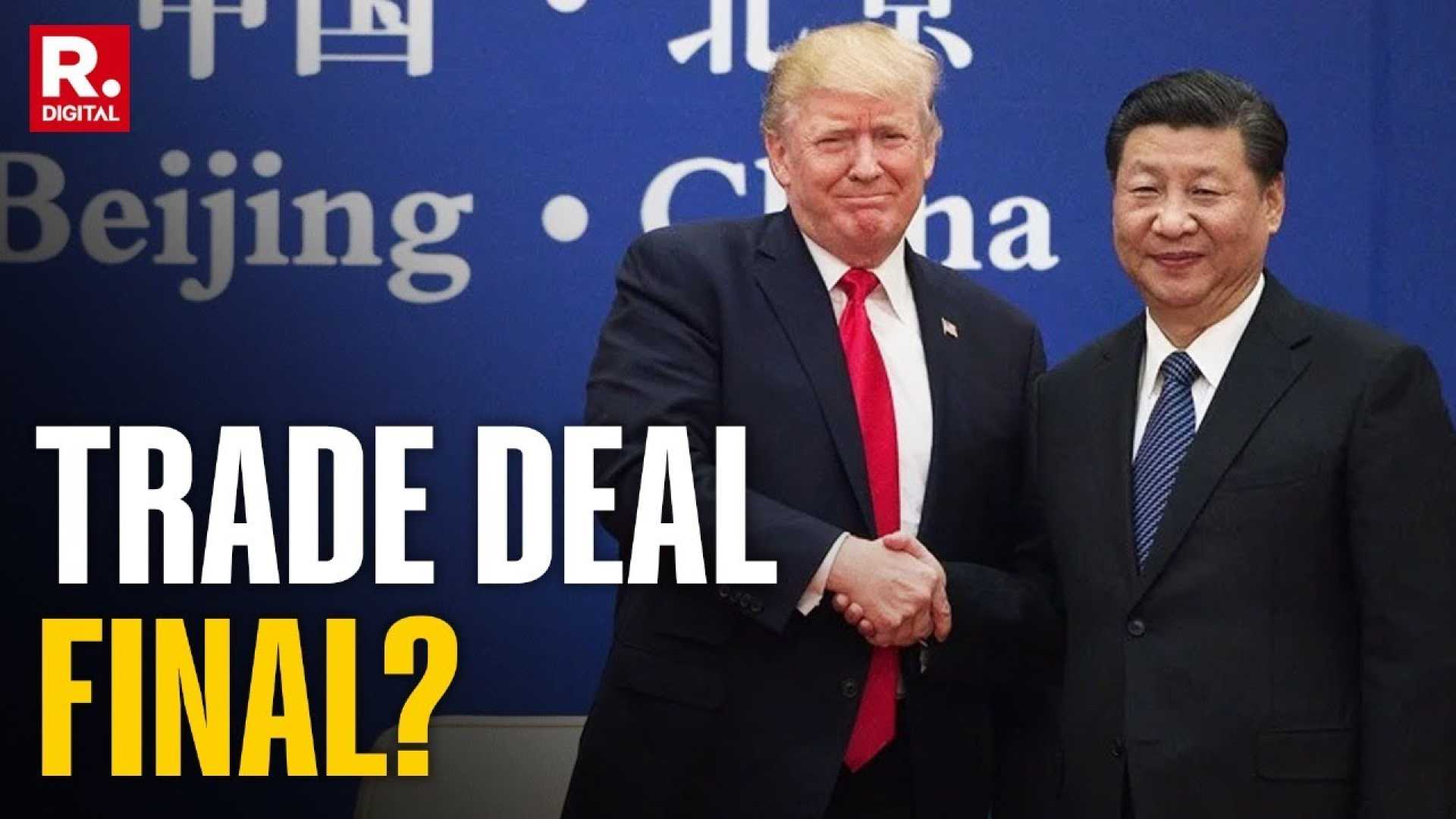Business
US, China Reach Framework For Trade Deal Ahead Of Key Meeting

WASHINGTON, D.C. — US and Chinese trade representatives have agreed on a framework for a new trade deal just days before a critical meeting between President Donald Trump and Chinese leader Xi Jinping.
The agreement may postpone the planned 100% tariff on Chinese goods that was set to take effect on November 1. This optimistic development comes as US stock futures rose significantly on Sunday, showing signs of renewed investor confidence.
As of 6:29 p.m. ET, Dow futures were up 0.65%, S&P 500 futures rose 0.74%, and Nasdaq futures climbed 0.92%. Markets reacted positively after the Dow closed above 47,000 for the first time, following less-than-expected Consumer Price Index data that spurred hopes for an interest rate cut from the Federal Reserve.
In Asia, major stock markets also reported gains. Japan‘s Nikkei 225 index rose by 1.9%, while South Korea‘s Kospi jumped 2.4%. Hong Kong’s Hang Seng index was trading up 1.28% in early hours.
Trump is scheduled to meet with Xi this Thursday in South Korea, concluding a week of high-profile diplomacy with Beijing. Relations have been tense recently due to China‘s decision to increase restrictions on critical rare-earth minerals, prompting Trump to threaten additional tariffs.
On Sunday, Treasury Secretary Scott Bessent expressed optimism regarding the upcoming meeting, stating, “I think we’ve reached a substantial framework for the two leaders who will meet next Thursday … that tariffs will be averted.”
Trump indicated willingness to make concessions, hinting at a “very good chance of making a very comprehensive deal.” While Bessent did not disclose specifics about the framework, he suggested that the US might see a deferral of China’s export controls on rare-earth materials, which are vital for the electronics industry.
The ongoing tariff war has had significant impacts across the US economy, including inflation and challenges for American farmers. The upcoming deal is expected to provide relief for farmers, especially soybean producers, who have faced severe setbacks since China halted imports of US soybeans.
According to US Department of Agriculture data, China was once the largest buyer of American soybeans but has not purchased any since May. This week’s negotiations aim to address these issues while restoring trade relations between the two countries.












